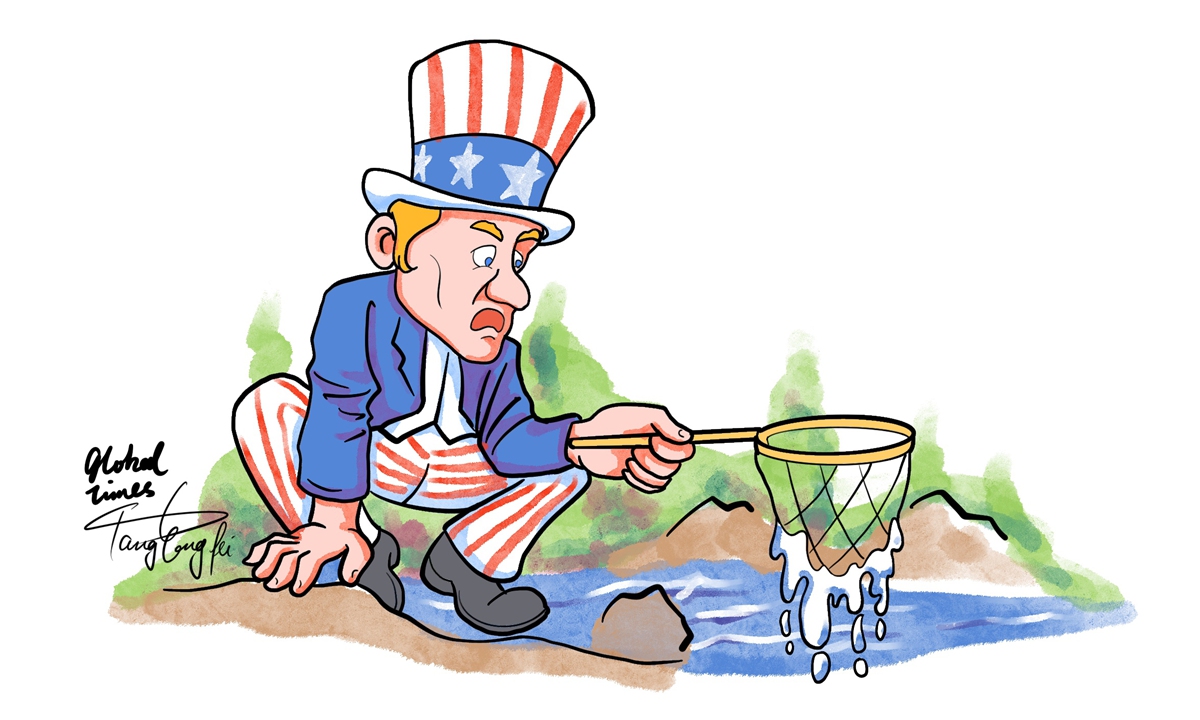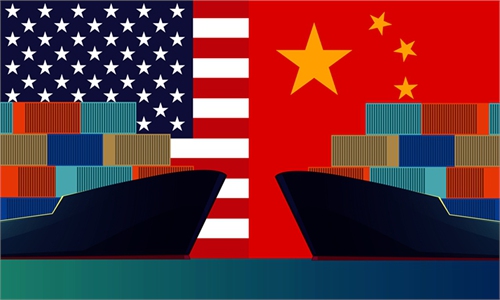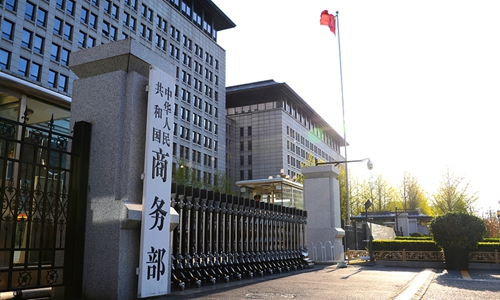
Illustration: Tang Tengfei/GT
US national security officials' push for another executive order to extend US investment ban on Chinese firms has reportedly encountered strong opposition from the US Treasury and Commerce departments. If the Biden administration doesn't want to let its political interference on trade spiral out of control, it should be careful about the plan.The disagreements between key White House national security and economic officials are delaying the Biden administration's plans for new restrictions on American banks, mutual funds and other financial institutions' investment in Chinese semiconductors, artificial intelligence, facial recognition and other areas, the Politico reported on Monday.
While the hardliners in Washington's security circles seem eager to ask US President Joe Biden to issue another executive order that would prohibit American investments in Chinese technology firms and startups, the US government's Treasury and Commerce officials argue that new legislation is to dramatically curtail and disrupt US business operations in China.
Since taking office, the Biden administration has expanded the Trump administration's investment ban on Chinese companies. In June 2021, Biden signed an executive order to expand US investment ban to more Chinese tech and defense enterprises on the basis of the executive order issued by his predecessor Donald Trump in November 2020. Last November, Biden decided to extend Trump's investment ban for one more year.
Citing so-called security allegations to intensify investment restrictions on Chinese companies, Washington's true intention - as the US national security adviser Jake Sullivan articulated - is to crack down on companies that help fund China's "technological capacity". American politicians like Sullivan believe that cutting off American investment in Chinese firms is effective in impeding China's technology and innovation progress, but they are very wrong.
Investing in Chinese technology companies apparently is helpful for promoting the scientific and technological progress of both countries, however, by restricting investment in Chinese companies, the US can only push China to strengthen its technological self-reliance and largely undermine American businesses' competitive edge in the Chinese market.
The anxiety felt by the US over China's scientific and technological progress mainly stems from its zero-sum game thinking of containing China's economic development.
However, the trend of globalization and economic laws have determined that if the US resort to political maneuver to forcibly decouple from the global manufacturing hub and the largest market, the American business community will face greater losses.
US Treasury and Commerce department officials who strongly push back the new plan for investment controls on Chinese companies argue that such moves will put American firms at a competitive disadvantage to European and Asian banks that will continue to access the world's second largest economy, according to Politico.
The cooperation between China and the US in the global value chain is highly intertwined. The Biden administration knows well it is unrealistic for the US to completely exclude China, the world's largest manufacturing powerhouse with a complete industrial chain that is increasingly supported with technology.
The US investment ban on a few Chinese high-tech giants has already had negative impact on the economies of both. If it continues to expand the scope of those restrictions, it will further undermine the mutual beneficial relationship between China and the US.
The US bans on investing Chinese companies represent a ruthless suppression of Chinese companies and serious violation of the principles of market competition and international economic and trade rules. It is hoped that the Biden administration can make due correction to this political manipulation, which is harmful to both the Chinese and US economies.
The author is an editor with the Global Times. bizopinion@globaltimes.com.cn



